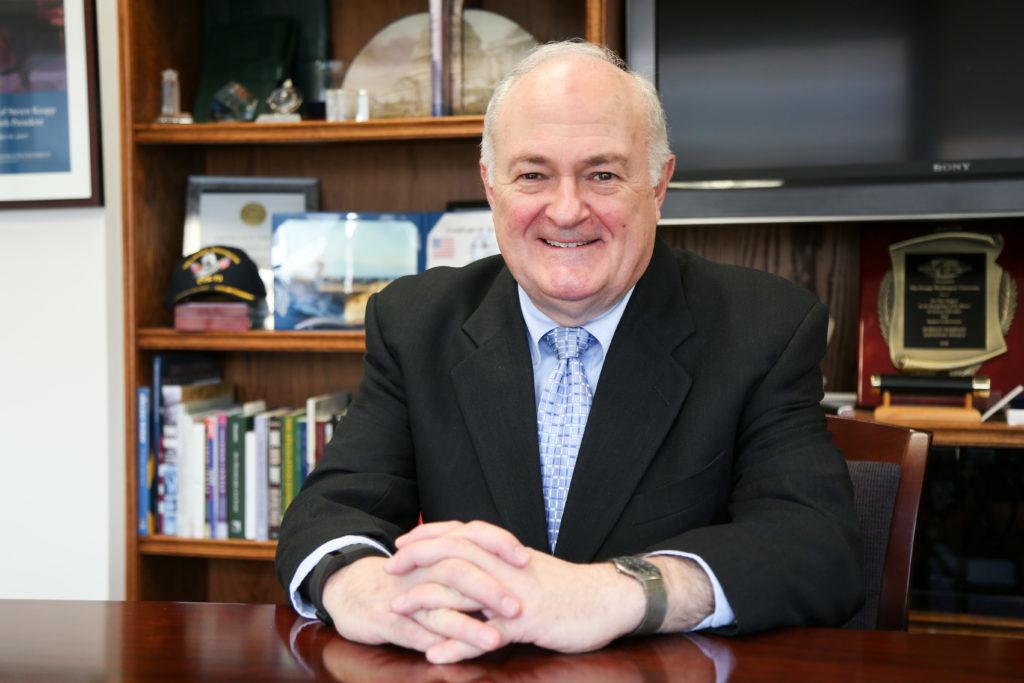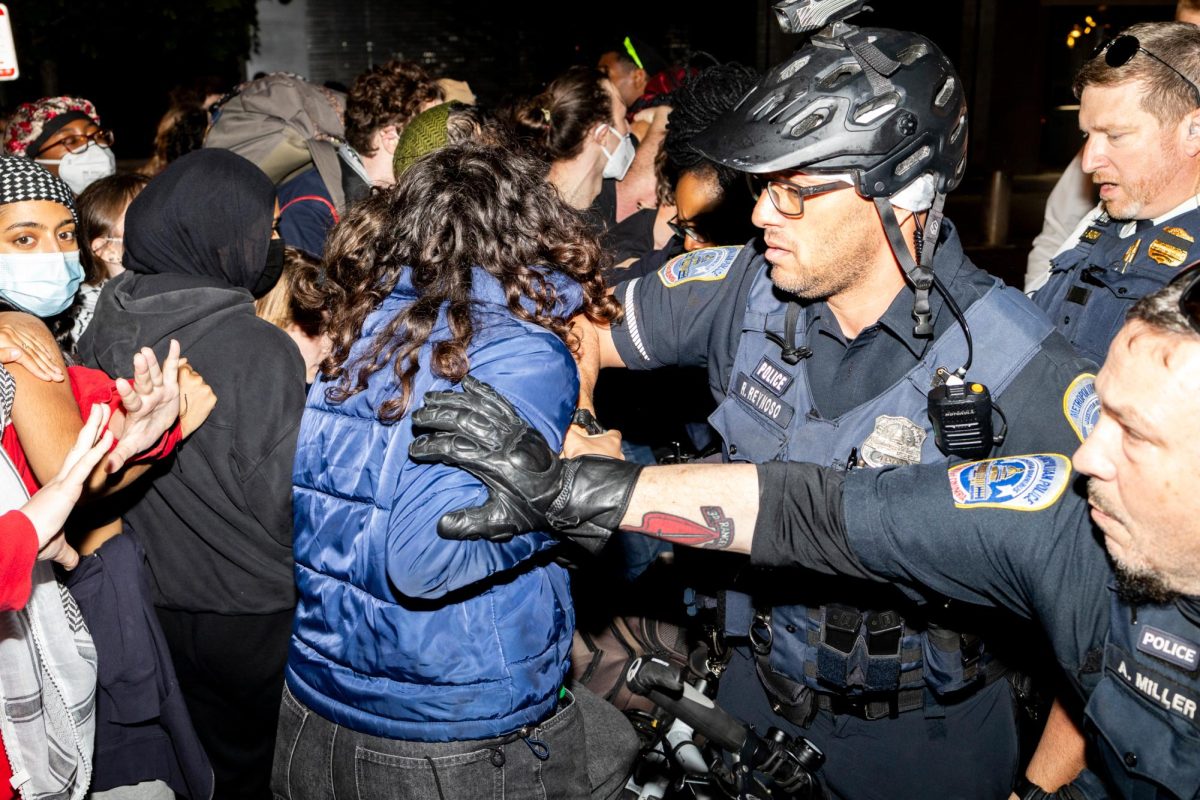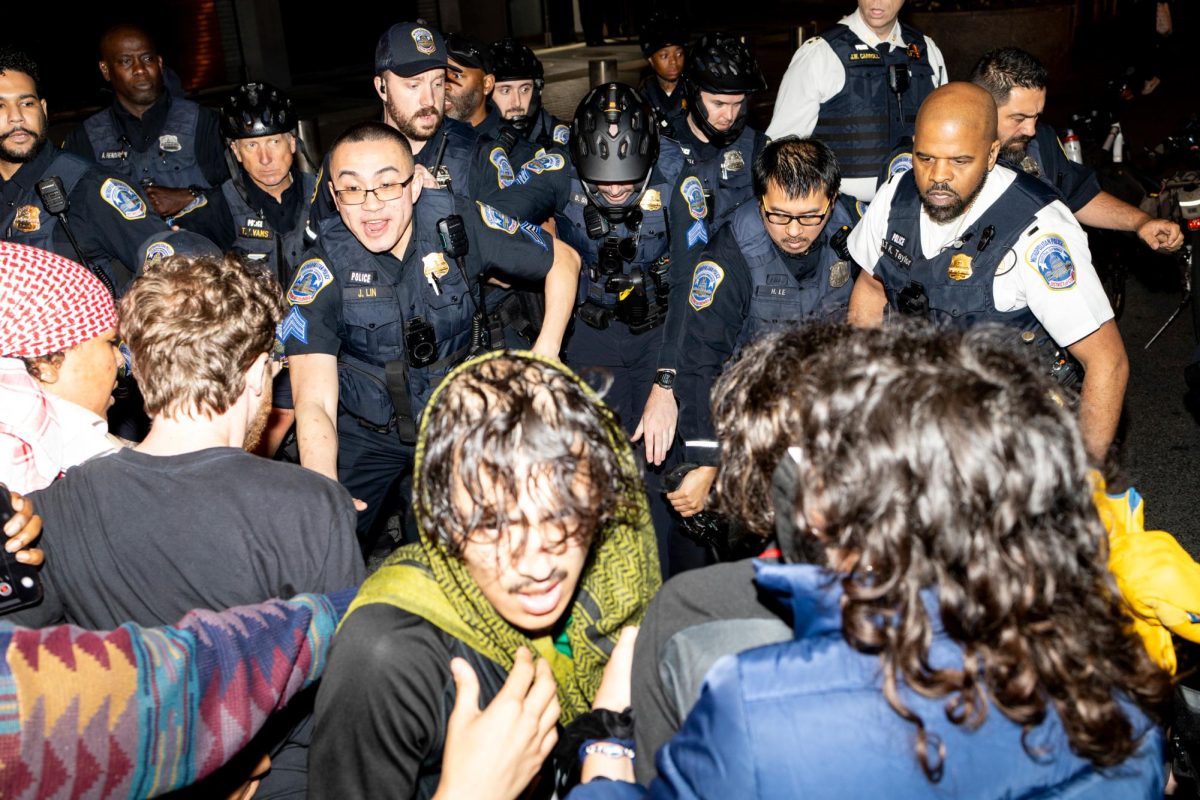As University President Steven Knapp prepares to move on from his role, neighbors say he worked to repair a long-frayed relationship between the University and the surrounding Foggy Bottom neighborhood.
Community leaders said Knapp was receptive to neighbors’ concerns about off-campus noise from students and the University’s expansion in Foggy Bottom, meeting with area residents and instituting new policies favored by the community. But some neighbors hope for more transparency on student conduct policies under incoming University President Thomas LeBlanc.
Relations had been strained between the University and Foggy Bottom residents, after former University President Stephen Joel Trachtenberg expanded the Foggy Bottom Campus into the surrounding neighborhood, particularly the historic district between 24th and 26th streets, frustrating many in the community.
Knapp said when he came to GW, he knew relations could be improved and set out to rebuild the relationship, holding meetings with neighbors to hear their concerns and suggestions.
“It’s a strong interest I’ve had, and if you’re going to be interested in the city, it doesn’t make sense to not also be interested in the health of your immediate neighborhood,” he said in an interview.
Knapp said he first became involved in community organizing when he lived in a violence-plagued neighborhood in Oakland, Calif. in the 1980s while working as an English professor at the University of California, Berkeley. He said he worked with local organizations pushing programs like community policing.
Later, when he left to become a dean and later provost at Johns Hopkins University, he said he wanted to keep working on community outreach, not a typical point of focus for a provost.
Bernard Demczuk, the former assistant vice president for District relations who left in December, previously said Knapp’s decision to move into F Street House, as the first president to live on campus since 1912, was a major turning point in relations with the neighborhood.
“If he’s going to live across the street from Thurston Hall, that’s a good sign that he was willing to endure some of the noise by the students but also to work with the students and the neighbors and try to help there be more peace within the community,” he said in an interview.
Demczuk said community relations had been steadily improving at the end of Trachtenberg’s tenure in 2007, when the University began outreach to neighbors. Under Trachtenberg, officials created the FRIENDS, a neighborhood and GW organization, to encourage conversation between the two groups.
“He proved to be a man of his word and that was really the most important thing as far as other neighbors were concerned.”
The effort continued and expanded as staff was added to the government relations office under both presidents, he said.
The Foggy Bottom Campus Plan, which determines where on campus the University can develop and construct new buildings and structures, also extended from 10 to 20 years just one year before Knapp began his presidency. The change decreased tensions with neighbors, as the officials promised to begin building vertically instead of horizontally in Foggy Bottom, he said.
Under Knapp, officials launched several construction projects including District House, the Science and Engineering Hall and a new building for the Milken Institute School of Public Health, but didn’t spread out as much into the surrounding neighborhood.
Marina Streznewski, the president of the Foggy Bottom Association, said she first met Knapp at a Freshmen Day of Service event while cleaning a park. She said he has been involved and engaged with the community throughout his tenure.
In 2014, Knapp visited a neighbor’s house and received records of more than 100 complaints of noise and loud off-campus parties, Streznewski said. She recalled telling Knapp that she understood the neighbors were not his biggest priority but he took the issue seriously.
On the Fourth of July, a couple of summers ago, Streznewski said she emailed Knapp about students running on roofs, and he responded on the holiday later that night.
“He proved to be a man of his word and that was really the most important thing as far as other neighbors were concerned,” she said.
In 2014, the University formalized the punishments for off-campus residents including enforcing a maximum two-year probation for a student’s fourth noise violation.
“He deserves a tremendous amount of credit for being a more genuine empathetic voice in a relationship that had really frayed for several decades prior.”
The University also instituted a community response program in 2015 to provide neighbors with a hotline to report incidents with students living off-campus after neighbors and students said tensions over noise and trash complaints were continuing.
Patrick Kennedy, the chairman of the Foggy Bottom and West End Advisory Neighborhood Commission, said Knapp improved communication between officials and the community.
“He deserves a tremendous amount of credit for being a more genuine empathetic voice in a relationship that had really frayed for several decades prior,” he said.
Diana Tiberi, another Foggy Bottom resident who is also a property owner and manager in the neighborhood, said the University has made an attempt to strengthen ties between the University and the neighborhood, but officials still need to crack down on students with consistent noise complaints.
“They may shut the party down, but it’s guaranteed that the next weekend you’re gonna do it all over again,” she said.
Andrew Goudsward and Colleen Grablick contributed reporting.





